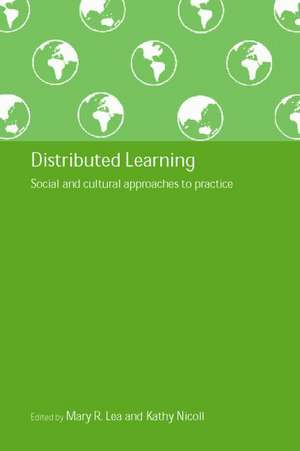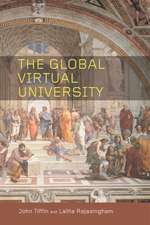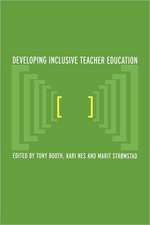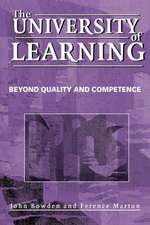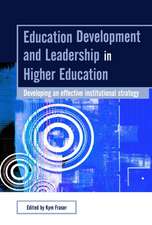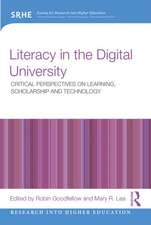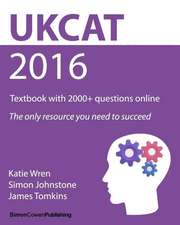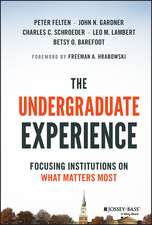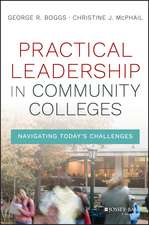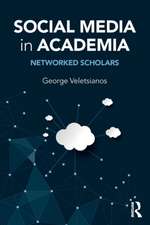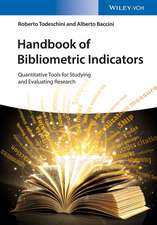Distributed Learning: Social and Cultural Approaches to Practice
Editat de Mary R. Lea, Kathy Nicollen Limba Engleză Paperback – 29 noi 2001
*the challenges of ICT to traditional teaching and learning practices
*the value and relevance of 'activity theory' and 'communities of practice' in educational institutions and the workplace
*perspectives on the relationship between globalisation and distributed learning, and the breakdown of distinctions between global and local contexts
*issues of identity and community in designing courses for the virtual student
*language and literacies in distributed learning contexts
This book provides useful introductory reading, building a sound theoretical framework for practitioners interested in how distributed learning is shaping post-compulsory education.
| Toate formatele și edițiile | Preț | Express |
|---|---|---|
| Paperback (1) | 147.58 lei 43-57 zile | |
| Taylor & Francis – 29 noi 2001 | 147.58 lei 43-57 zile | |
| Hardback (1) | 352.18 lei 43-57 zile | |
| Taylor & Francis – 29 noi 2001 | 352.18 lei 43-57 zile |
Preț: 147.58 lei
Preț vechi: 199.25 lei
-26% Nou
Puncte Express: 221
Preț estimativ în valută:
28.24€ • 29.56$ • 23.50£
28.24€ • 29.56$ • 23.50£
Carte tipărită la comandă
Livrare economică 31 martie-14 aprilie
Preluare comenzi: 021 569.72.76
Specificații
ISBN-13: 9780415268097
ISBN-10: 0415268095
Pagini: 224
Dimensiuni: 156 x 234 x 10 mm
Greutate: 0.41 kg
Ediția:1
Editura: Taylor & Francis
Colecția Routledge
Locul publicării:Oxford, United Kingdom
ISBN-10: 0415268095
Pagini: 224
Dimensiuni: 156 x 234 x 10 mm
Greutate: 0.41 kg
Ediția:1
Editura: Taylor & Francis
Colecția Routledge
Locul publicării:Oxford, United Kingdom
Public țintă
ProfessionalRecenzii
'This is a high quality, leading edge volume which seeks not only to explore social and cultural aspects of distributed learning but also to 'push the enevlope' of established methods of enquiry into open and distance educational theory.' - Carolyn Richardson, British Journal of Educational Technology
'This is a rich resource for teachers in a range of settings. Those of us working as teacher educators will find it extremely useful as a way of engaging our practitioner-students with the problematic issue of the relationship between learning and technology and challenging assumptions about the utility of ICT as a teaching tool ... The contributions offer an empowering indication of how we can better understand, and thus take a more active role in shaping, "distibuted learning" for the future.' - Janice Malcolm, Teaching in Higher Education
'This is a rich resource for teachers in a range of settings. Those of us working as teacher educators will find it extremely useful as a way of engaging our practitioner-students with the problematic issue of the relationship between learning and technology and challenging assumptions about the utility of ICT as a teaching tool ... The contributions offer an empowering indication of how we can better understand, and thus take a more active role in shaping, "distibuted learning" for the future.' - Janice Malcolm, Teaching in Higher Education
Cuprins
1. Information, Knowledge and Learning: Some Issues Facing Epistemology and Education in a Digital Age 2. Informed Opportunism: teaching for Learning in Uncertain Contexts of Distributed Education 3. Legitimate Peripheral Participation in Communities of Practice 4. Looking Beyond the Interface: Activity Theory and Distributed Learning 5. Workplaces, Communities and Pedagogy: An Activity Theory View 6. Distribution and Interconnectedness: the Globalisation of Education 7. The English Language and 'Global' Teaching 8. From Independent Learning to Collaborative Learning: New Communities of Practice in Open, Distance and Distributed Learning 9. Learning as Cultural Practice 10. The University Campus as a 'Resourceful Constraint': Process and Practice in the Construction of the Virtual University 11. Identity, Community and Distributed Learning 12. Flexible Literacies: Distributed Learning and Changing Educational Spaces
Descriere
During the last decade, new technologies have resulted in new forms for delivering learning, together with new terms for describing them. This book provides a framework for those who are new to the field of distributed learning.
